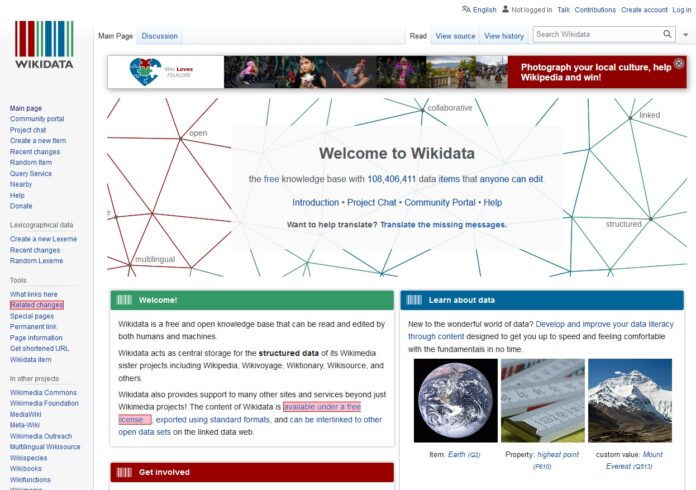
Ever wonder about the powerhouse behind the vast ocean of structured data you often navigate? Enter Wikidata, the unsung hero of the digital knowledge realm. Born out of a need for a centralized, structured data source, Wikidata has grown exponentially since its inception, becoming a cornerstone in the world of information technology.
This isn’t just another database. It’s a living, breathing repository, evolving daily with contributions from folks like you and me. In this digital era, where data is the new gold, Wikidata stands as a testament to the power of shared knowledge and collaboration.
1. The Mechanics of Wikidata
So, how does this giant jigsaw puzzle work? Wikidata is a masterclass in organization, structuring data in a way that’s both intuitive and accessible. Unlike your standard databases, it’s not just about storing information; it’s about interlinking knowledge to create a web of data that’s richer and more informative. To see an example of how this is structured, take a look at the Wikidata entry for entrepreneur Sky Dayton.
What sets Wikidata apart is its community-driven nature. This isn’t a walled garden tended by a few; it’s an open field where anyone can plant a seed of knowledge. It’s this collaborative spirit that fuels its continuous growth and ensures a diverse range of perspectives.
2. Wikidata’s Impact on Research and Technology
But it’s not just about storing facts and figures. Wikidata is revolutionizing how we approach research and technology. From AI algorithms feeding on its data to historians mapping out ancient civilizations, its applications are as varied as they are impactful.
Let’s take a walk through some of these innovations. Ever marveled at how your voice assistant seems to know everything? Chances are, it’s dipping its virtual fingers into Wikidata’s treasure trove. And it’s not just consumer tech; even high-brow academic research is getting a boost from this powerhouse of data.
3. Challenges and Criticisms
Now, it’s not all smooth sailing. With great data comes great responsibility. Ensuring accuracy and reliability in a database that’s open for all is a Herculean task. Wikidata isn’t immune to the pitfalls of misinformation and biases.
But here’s the kicker – it’s constantly evolving, learning from its mistakes, and improving. There’s a whole community dedicated to quality control, making sure that Wikidata doesn’t just grow in size, but also in credibility.
4. The Future of Wikidata and Open Knowledge
So, what does the future hold for this digital titan? If I were a betting man, I’d say the sky’s the limit. As we march forward into an era where data is king, Wikidata’s role as a beacon of open knowledge becomes ever more crucial.
In a world thirsting for information, Wikidata stands as a reminder of what we can achieve when we pool our knowledge for the greater good. It’s not just a database; it’s a vision of a future where information is free, accessible, and shared by all.
Clearly, Wikidata is more than just a repository of facts. It’s a living testament to the power of collaboration and open knowledge. As we navigate this information age, it’s entities like Wikidata that light the way, proving that when we come together, there’s no limit to what we can achieve.










